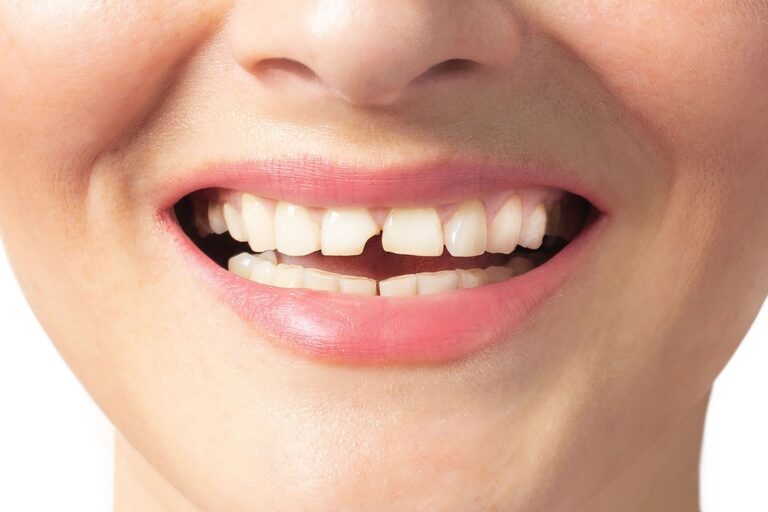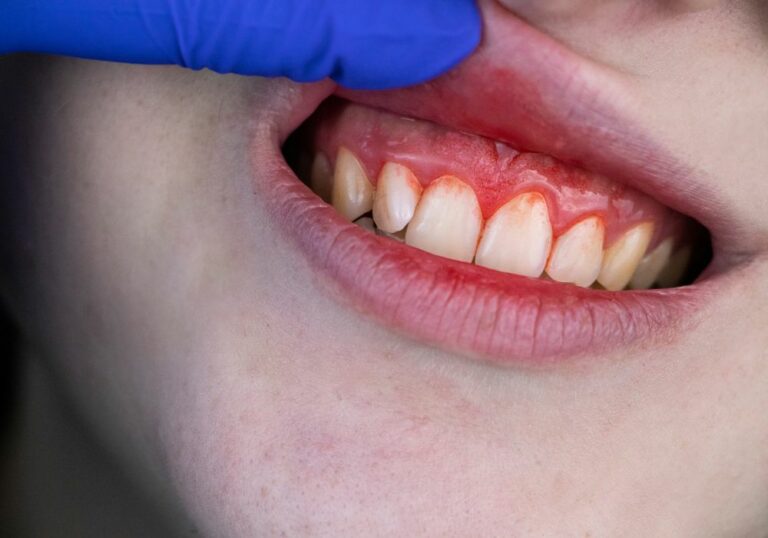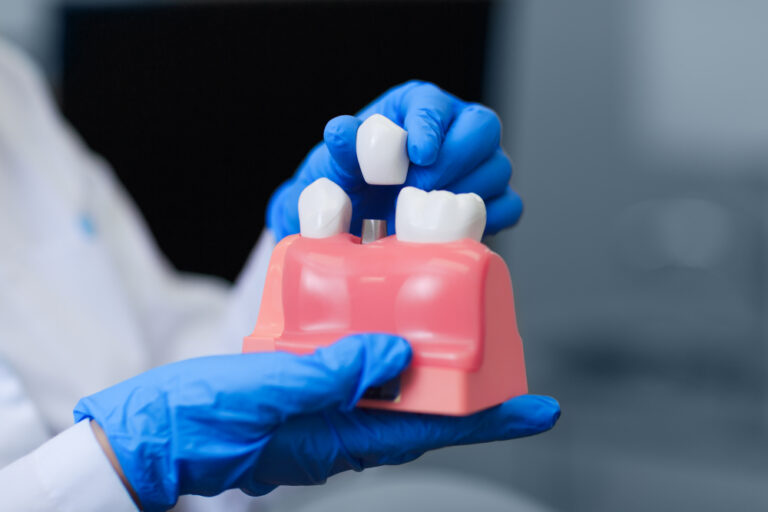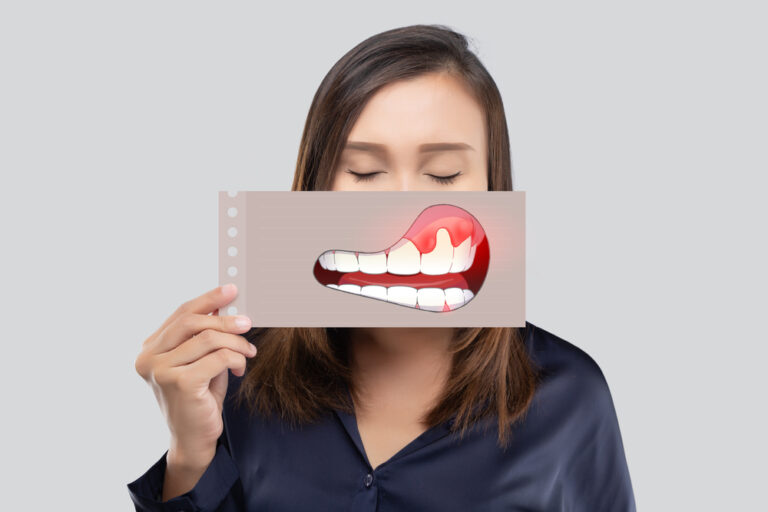Have you ever noticed that your teeth are turning black? This can be a cause for concern, as it may indicate an underlying dental issue that requires immediate attention. While teeth naturally range in color from white to yellow, black teeth can be a sign of decay, stains, or other problems.
There are several factors that can cause teeth to turn black. Intrinsic factors, such as dental decay or cavities, can cause discoloration on the inner layer of the tooth. Extrinsic factors, such as certain foods and drinks, can affect the outer surface of the teeth and cause extrinsic discoloration. Regardless of the cause, black teeth should not be ignored, as they may indicate a serious dental issue that requires treatment.
In this article, we will explore the causes of black teeth, the symptoms to look out for, and the treatment options available. We will also discuss preventive measures you can take to ensure the health and whiteness of your teeth. So, if you’re concerned about your black teeth, keep reading to learn more.
Understanding Black Teeth
It can be concerning to notice that your teeth have turned black. However, it’s important to understand that black teeth can be caused by a variety of factors, and not all of them are serious. In this section, we’ll explore some of the common causes of black teeth and what you can do about them.
Extrinsic Causes
Extrinsic causes of black teeth are related to external factors that affect the enamel of your teeth. These factors can include:
- Staining from food and drink: Certain foods and drinks, such as coffee, tea, red wine, and cola, can stain your teeth over time.
- Tobacco use: Smoking or using smokeless tobacco can cause your teeth to turn black or brown.
- Poor oral hygiene: Failing to brush and floss regularly can cause plaque and tartar buildup, which can lead to discoloration.
If your black teeth are caused by extrinsic factors, your dentist may recommend a professional cleaning or teeth whitening treatment to help restore the natural color of your teeth.
Intrinsic Causes
Intrinsic causes of black teeth are related to factors inside your teeth, such as the dentin or pulp. These factors can include:
- Tooth decay: If a cavity is left untreated, it can cause the affected tooth to turn black or brown.
- Trauma: A blow to the mouth or other injury can cause a tooth to turn black.
- Medications: Certain medications, such as liquid iron supplements, can cause teeth to darken.
If your black teeth are caused by intrinsic factors, your dentist may recommend a filling, root canal, or other treatment to address the underlying issue.
Fluorosis
Fluorosis is a condition that can cause black or brown spots to appear on your teeth. It occurs when you consume too much fluoride during the development of your teeth. While fluorosis can be unsightly, it usually doesn’t cause any health problems. Your dentist may recommend teeth whitening or other cosmetic treatments to improve the appearance of your teeth.
In summary, black teeth can be caused by a variety of factors, both extrinsic and intrinsic. If you notice that your teeth have turned black, it’s important to see your dentist to determine the underlying cause and receive appropriate treatment.
Causes of Black Teeth
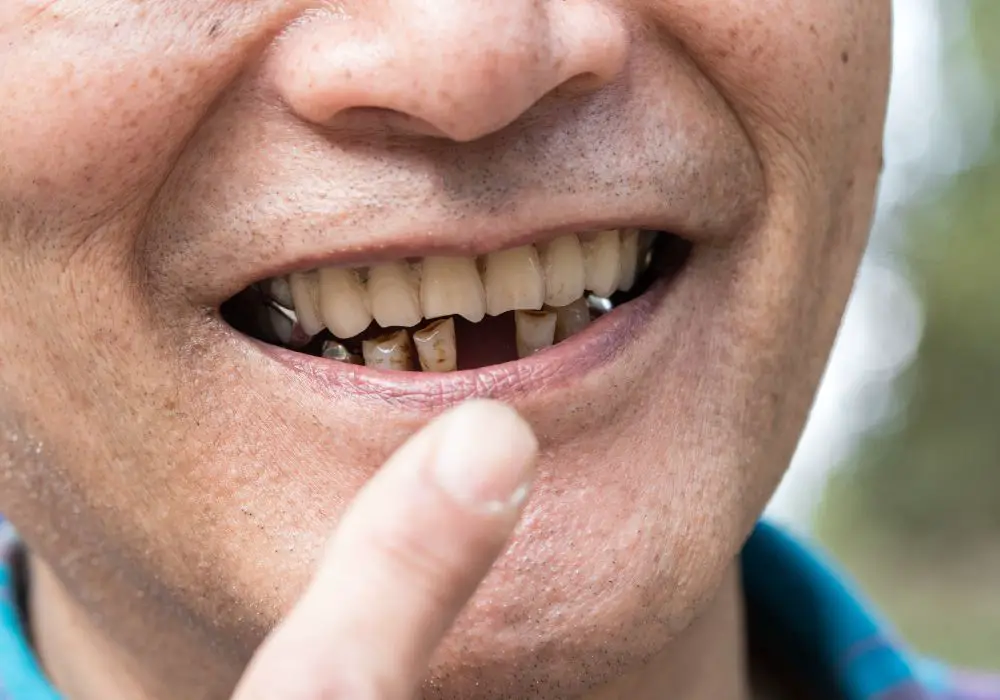
If you have noticed that your teeth are turning black, there are several reasons why this might be happening. Here are some of the most common causes of black teeth:
Poor Oral Hygiene
Neglecting your oral hygiene can lead to the buildup of plaque and tartar on your teeth. Over time, this can cause your teeth to become discolored and turn black. To prevent this from happening, it is important to brush your teeth twice a day, floss daily, and visit your dentist regularly for cleanings.
Smoking and Tobacco Use
Using tobacco products like cigarettes and chewing tobacco can cause your teeth to turn black. These products contain tar and nicotine, which can stain your teeth and cause them to become discolored. Quitting smoking or using tobacco products can help prevent further discoloration and improve your overall oral health.
Certain Foods and Drinks
Consuming certain foods and drinks can also cause your teeth to turn black. Dark-colored beverages like coffee, tea, and red wine can stain your teeth over time. Acidic foods and drinks like citrus fruits and soda can also erode your tooth enamel, which can make your teeth appear darker.
Certain Medications
Some medications can cause your teeth to turn black as a side effect. For example, certain antibiotics like tetracycline can cause discoloration of the teeth in children whose teeth are still developing. Chemotherapy drugs can also cause discoloration of the teeth in some cases.
Trauma to the Teeth
If you have experienced trauma to your teeth, such as a fall or injury, this can cause them to turn black. This is because the trauma can damage the blood vessels inside your teeth, which can cause them to die and turn black. If you have experienced trauma to your teeth, it is important to see your dentist as soon as possible to prevent further damage.
By understanding the common causes of black teeth, you can take steps to prevent further discoloration and improve your oral health.
Symptoms Accompanying Black Teeth
If you notice your teeth turning black, it is important to pay attention to any accompanying symptoms that may indicate an underlying dental issue. Here are some symptoms to watch out for:
Bad Breath
Black teeth can be a sign of decay or cavities, which can lead to bad breath. When bacteria in the mouth break down food particles, they release a foul odor that can cause halitosis, or bad breath. If you notice a persistent bad taste or smell in your mouth, it may be a sign of an underlying dental problem.
Toothache
A toothache is a common symptom of dental problems, such as cavities or infections. If you experience a sharp, throbbing pain in your tooth, it may be a sign that the decay has reached the nerve of the tooth. In some cases, a toothache may be accompanied by sensitivity to hot or cold temperatures.
Swelling and Redness in Gums
If your gums are swollen or red, it may be a sign of gum disease, which can cause black teeth. Gum disease is caused by a buildup of plaque and bacteria on the teeth and gums, which can lead to inflammation and infection. If left untreated, gum disease can cause tooth loss and other serious health problems.
In summary, black teeth can be a symptom of underlying dental problems, such as decay, cavities, or gum disease. If you notice any of these accompanying symptoms, it is important to seek dental care to prevent further damage to your teeth and gums.
Diagnosis of Black Teeth
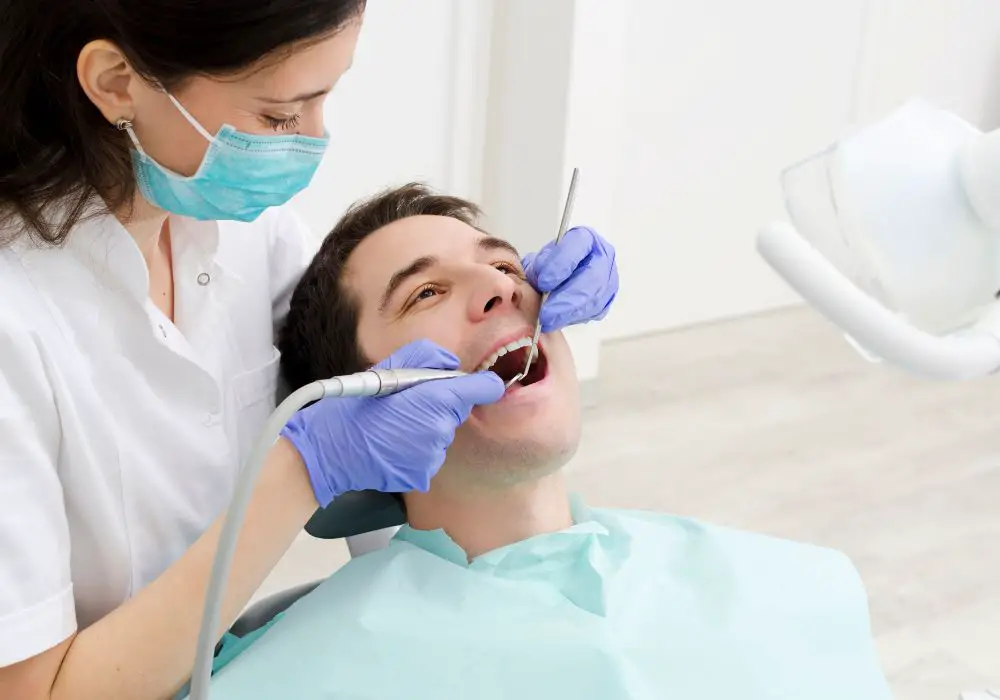
If you suspect that your teeth are turning black, it is important to see a dentist for a proper diagnosis. The dentist will perform a dental examination and may also take X-rays to determine the cause of the discoloration.
Dental Examination
During a dental examination, the dentist will visually inspect your teeth and gums for signs of discoloration or decay. They may also use a dental instrument to gently probe your teeth to check for any areas of softness or decay.
In some cases, the dentist may also perform a pulp vitality test to determine if the tooth is still alive. This involves placing a cold or hot stimulus on the tooth to see if you feel any pain or discomfort.
X-rays
If the dentist suspects that the discoloration is due to decay or damage to the tooth, they may take X-rays to get a better look at the tooth’s structure. X-rays can help the dentist see if there is any decay or damage to the tooth’s pulp or root.
Overall, a proper diagnosis is crucial to determining the best course of treatment for black teeth. If you are experiencing any discoloration or pain in your teeth, it is important to see a dentist as soon as possible.
Treatment Options for Black Teeth
If your teeth have turned black, you may be wondering what your treatment options are. The good news is that there are several options available to help restore your teeth to a healthy, natural-looking state.
Professional Cleaning
In some cases, black teeth may be caused by surface stains that can be removed with a professional cleaning. Your dentist will use special tools and techniques to remove any buildup of plaque, tartar, or stains on your teeth. This can help to brighten your smile and improve the overall appearance of your teeth.
Root Canal Therapy
If your black teeth are caused by decay or infection, your dentist may recommend root canal therapy. This procedure involves removing the infected or damaged tissue from inside your tooth and filling it with a special material to prevent further damage. Root canal therapy can help to save your tooth and prevent the need for extraction.
Veneers and Crowns
For more severe cases of black teeth, your dentist may recommend veneers or crowns. Veneers are thin shells that are placed over the front of your teeth to improve their appearance. Crowns, on the other hand, are caps that are placed over your entire tooth to restore its shape and function. Both veneers and crowns can be made from a variety of materials, including porcelain and resin, and can be customized to match the color and shape of your natural teeth.
Overall, the best treatment option for your black teeth will depend on the underlying cause and severity of the discoloration. Your dentist can help you determine the best course of action to restore your teeth to a healthy, natural-looking state.
Prevention Strategies for Black Teeth
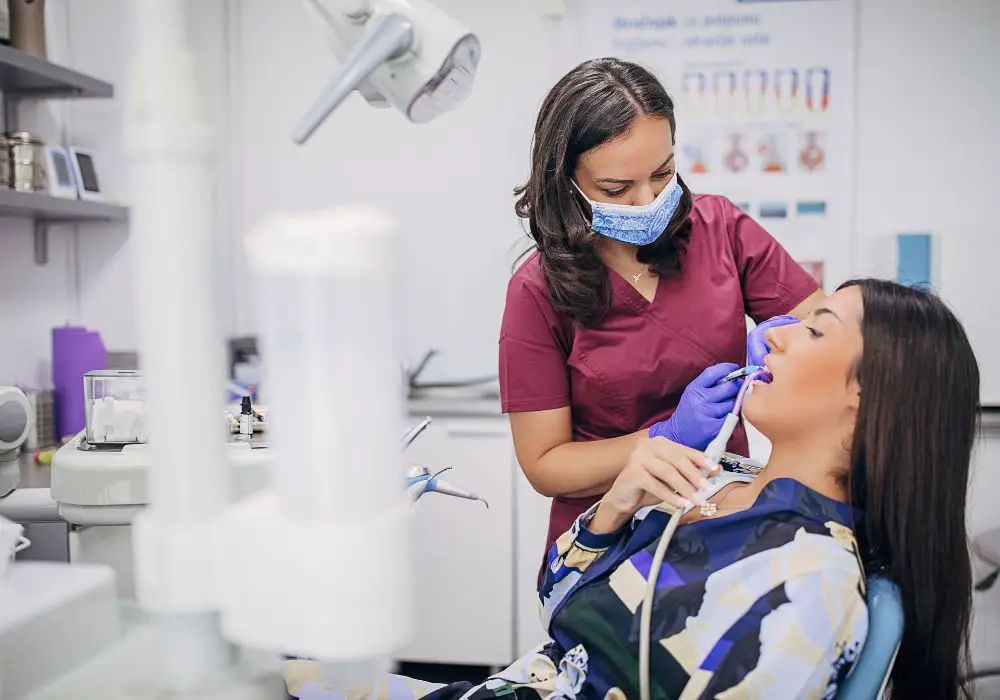
Preventing black teeth is crucial to maintaining good oral health and a bright smile. Here are some effective strategies you can implement to prevent black teeth.
Regular Dental Check-ups
Regular dental check-ups are essential for preventing black teeth. Dentists can identify early signs of tooth decay, gum disease, and other dental problems that can lead to black teeth. They can also provide professional cleaning to remove plaque and tartar buildup that can cause staining and discoloration.
It is recommended to visit your dentist at least twice a year for routine check-ups and cleanings. However, if you have a history of dental problems or are at a higher risk of developing black teeth, your dentist may recommend more frequent visits.
Proper Oral Hygiene Practices
Proper oral hygiene practices are crucial for preventing black teeth. Brushing your teeth twice a day with fluoride toothpaste can help remove plaque and prevent tooth decay. Flossing daily can help remove food particles and plaque from hard-to-reach areas between teeth and along the gumline.
Using mouthwash can also help prevent black teeth by killing bacteria that cause bad breath and tooth decay. However, it is important to choose a mouthwash that does not contain alcohol, as it can dry out your mouth and contribute to tooth discoloration.
Healthy Diet
A healthy diet is also essential for preventing black teeth. Avoiding sugary and acidic foods and drinks can help prevent tooth decay and enamel erosion, which can cause black teeth. Instead, opt for a balanced diet that includes plenty of fruits, vegetables, lean protein, and whole grains.
Drinking plenty of water can also help prevent black teeth by washing away food particles and bacteria that can cause staining and decay. Additionally, chewing sugar-free gum after meals can help stimulate saliva production, which can neutralize acids and prevent tooth decay.
By following these prevention strategies, you can maintain good oral health and prevent black teeth. Remember to visit your dentist regularly, practice good oral hygiene, and maintain a healthy diet to keep your teeth strong, healthy, and white.
Frequently Asked Questions
How can black stains on teeth be removed naturally?
There are several natural remedies that can help remove black stains from teeth. One of the most effective is brushing your teeth with baking soda. You can also use activated charcoal, apple cider vinegar, or hydrogen peroxide mixed with baking soda. However, it’s important to remember that these remedies should be used in moderation and not too frequently, as they can damage tooth enamel.
What causes teeth to turn black?
Teeth can turn black for a variety of reasons. Some common causes include poor oral hygiene, smoking, consuming dark-colored foods and drinks, and certain medications. Black teeth can also be a sign of decay or cavities, which can lead to serious dental problems if left untreated.
Is it possible to save a tooth that has turned black?
Yes, it is possible to save a tooth that has turned black, but it depends on the cause of the discoloration. If the tooth is black due to decay or cavities, a dentist can remove the decayed tissue and fill the tooth with a filling material. If the tooth is severely damaged, a root canal or extraction may be necessary.
What are some treatments for black teeth?
The treatment for black teeth depends on the cause of the discoloration. If it’s due to extrinsic factors like staining, a dentist can perform a professional cleaning or teeth whitening procedure. If it’s due to intrinsic factors like decay or cavities, a filling or root canal may be necessary. In severe cases, extraction may be the only option.
How long can a tooth remain black?
The length of time a tooth can remain black depends on the cause of the discoloration. If it’s due to extrinsic factors like staining, the discoloration can be removed with professional cleaning or teeth whitening procedures. If it’s due to intrinsic factors like decay or cavities, the tooth will continue to decay until it’s treated by a dentist.
What are the risks associated with black tooth decay?
Black tooth decay can lead to serious dental problems if left untreated. It can cause pain, infection, and even tooth loss. Decay can also spread to other teeth and cause further damage to your oral health. It’s important to see a dentist as soon as possible if you notice black discoloration on your teeth.

